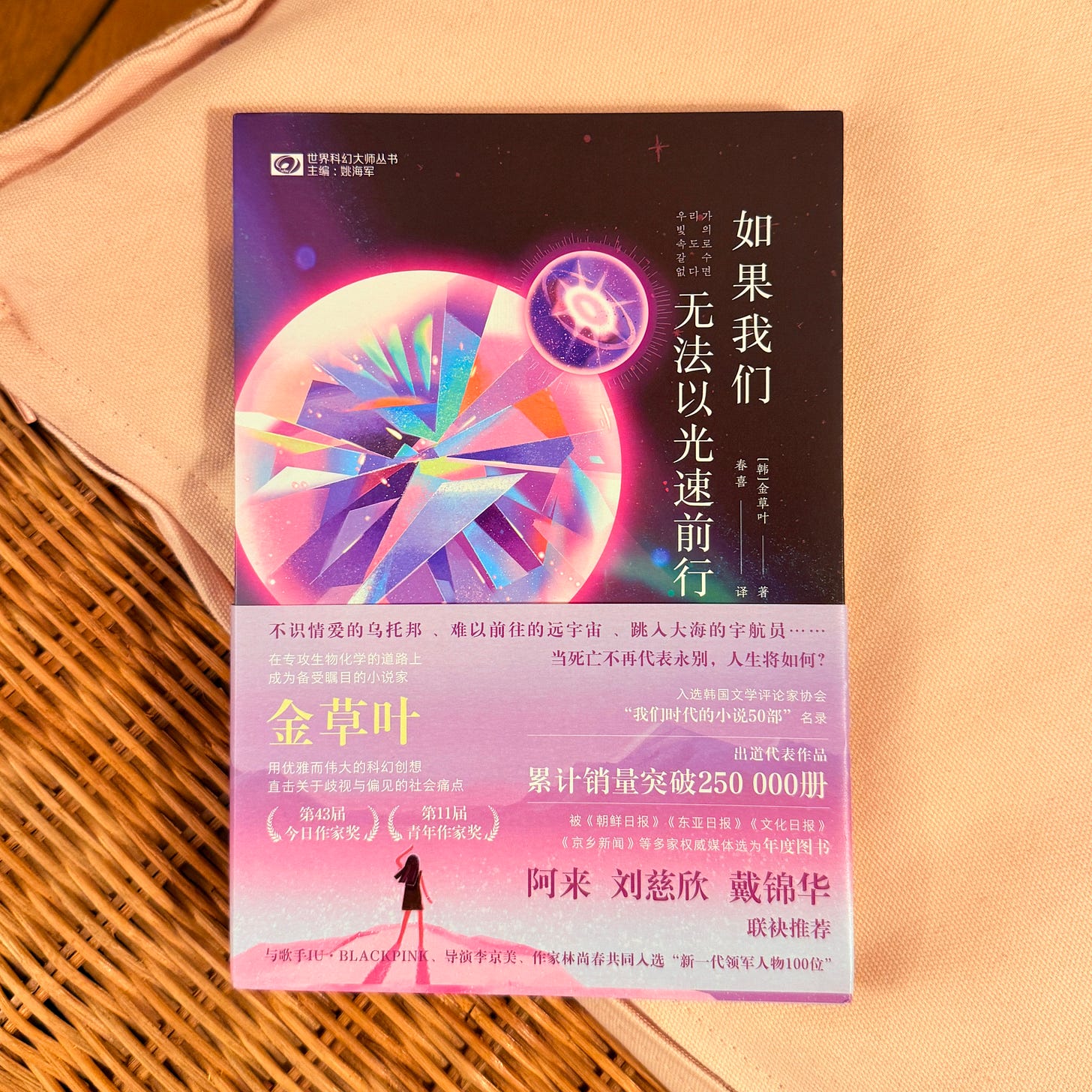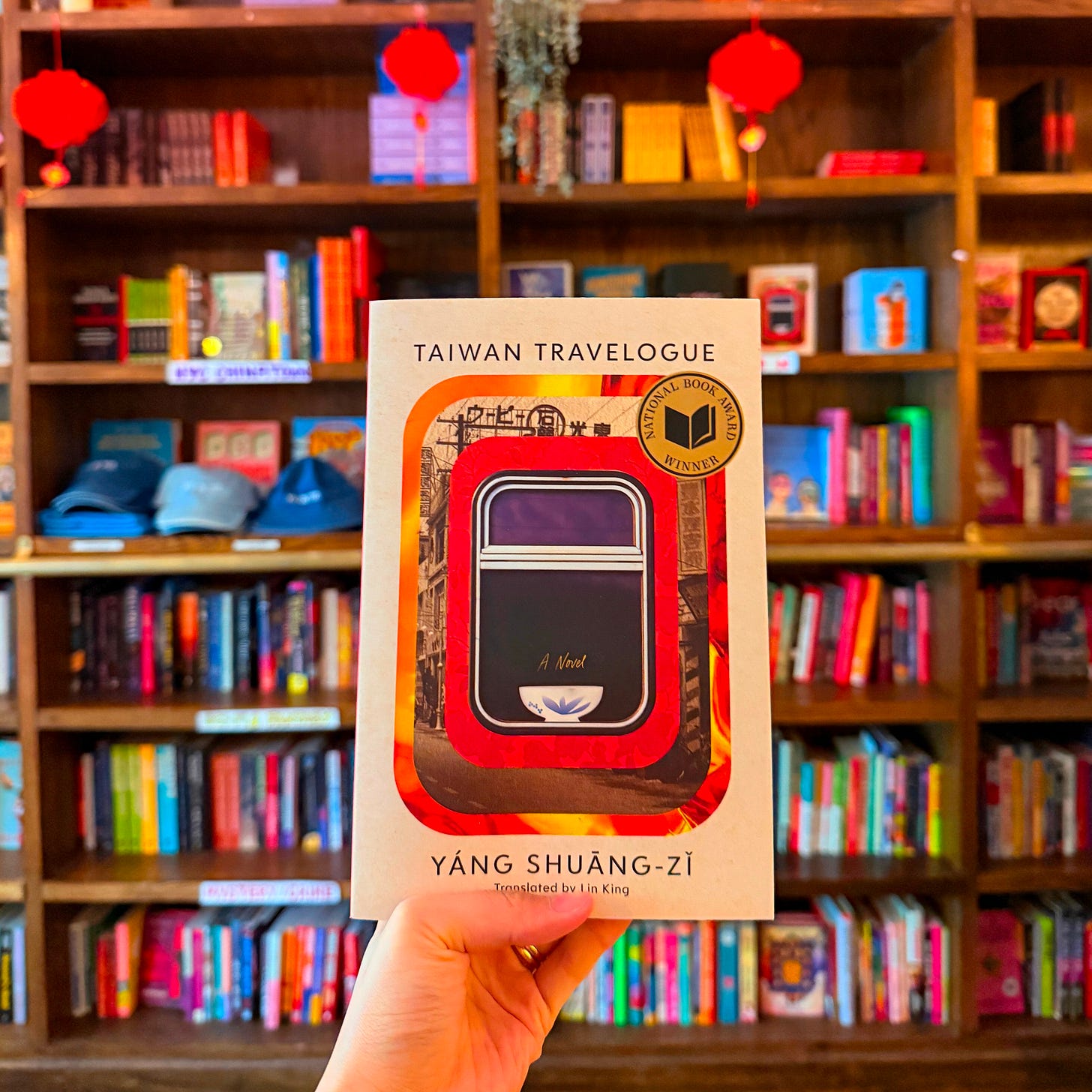4 Reasons to Read Translated Literature
the Goodreads algorithm and the NYT bestseller list is failing us!!
Of course, translated literature is nothing new. Over 2 billion people read a most popular work of translated literature, the Bible, on a regular basis. Schoolchildren in the States are exposed to translations of classic Western literature that almost doesn’t commonly register as translated — Hans Andersen/Grimm’s fairytales, Heidi, the Little Prince, tales of Greek mythology, medieval English poetry, Tolstoy, etc.
I began reading translated Korean literature because while I wanted to find and read contemporary Korean writers, English remained the language I read the best and quickest in. It took me some time to figure out where to look and whose names to look for, but eventually, I found my way into such an exciting and refreshing corner of the literary world.
Refreshing because a long-standing pet peeve of mine has been that the Goodreads algorithm does absolutely nothing for readers looking for curated recommendations, that popular bestseller lists and book influencer accounts only show the same titles over and over. Every few months, I lose my mind over the fact that it takes no effort to curate my algorithm to feed me exactly the kinds of videos I want to watch, but I have yet to find such an algorithm or platform for super-personalized book recommendations.
I’m starting this Substack because I would have loved to have found something like this when I first started out reading translated literature. I’ve weaseled my way into a corner of the book world where everything I read is so very exciting and refreshing, so very novel (ha), no trite or overdone tropes, where everything I read teaches me so many new things about the world, brings new perspectives to life… I hope you can sense my excitement.
Here are 4 reasons to persuade you (if you aren’t already) to join me in reading writers from outside the Anglosphere.
1. If you’re multilingual, it’s such a fun time reading the same book in multiple languages.
If you read multiple languages, which most of the world does, I would highly recommend this experience. It’s like rereading the same book twice but through differently colored lenses. It’s captivating to read how the author and the translator(s) communicate the story in their own ways.
The Dallergut Dream Department Store by Miye Lee, translated by Sandy Joosun Lee was one of the first books I intentionally read in both Korean and English, side by side on my e-reader, which was a lot of fun.
Next on my list is 우리가 빛의 속도로 갈 수 없다면 by 김초엽 Kim Cho Yeop (如果我们无法以光速前行, translated by 春喜), to be read simultaneously in Mandarin and Korean (and I think I heard the English translation might be coming out somewhere soon?). My Mandarin is elementary, but I’m excited to give this book a go to help me revive my language skills — another plus.
2. If English is your dominant reading language but aren’t from the US/UK, reading translated literature from your country teaches you so much.
I wasn’t formally schooled in South Korea, so reading Korean writers helped immensely in filling in the gaps that I had on South Korean history and politics. Han Kang’s Human Acts translated by Deborah Smith showed me intimate details about the 1980 Gwangju uprising, as well as her We Do Not Part translated by e. yaewon and Paige Aniyah Morris on the 4-3 Jeju uprising. Flowers of Fire by Hawon Jung was a helpful overview of contemporary South Korean feminism (the book is originally written in English, but I would consider translated-literature-adjacent as Jung translates this context for the English reader). Other novels have added further contextual layers to my understanding of Korea’s labor market, democratic and colonial histories, and more.
The global imperial function of the English language erases and flattens the histories of the world to a point where a child might learn the capitals of the 50 states of America before the names of their own country’s kings and queens. English-translated literature still uses the imperial lingua franca, alas, but there is still much to be gained from reading something that was not originally written with the American-born-and-raised context/audience in mind.
3. If you’re preparing to travel or just want to learn about another country/language, reading something directly from a writer there can add so much context.
Despite two million new books published every year globally, I’m positive the average person can name maybe five newly-released titles this year, further positive that they’ll all be US/UK writers. Reading expands you, as everyone says it does, but it really is true. And what better way to learn about someplace new than by directly reading the writers from a certain region?
I read The Return by Dulce Maria Cardoso, translated by Ángel Gurría-Quintana in preparation for a trip to Portugal, a story about a Portuguese family in Angola who returns to Portugal after the independence of Portugal’s colonies in the 1970s, about shifting relations of race, status, and class. Reading at least one piece of literature from a place before visiting it felt like I had been given a tiny glance inside an intimate piece of national history that helped contextualize my visit further.
I’m headed to Taiwan soon, and I just finished Taiwan Travelogue by Yáng Shuang-zi, translated by Lin King, a book about a Japanese novelist visiting Taiwan during Japanese colonial rule over the island and her relationship with her Taiwanese interpreter. I find that reading a captivating story is far more effective than a history textbook at teaching me about world affairs.
4. If you’ve ever felt frustrated with your available book options, turning to translated lit from authors outside the Anglosphere opens you up to infinitely more options.
Numerically, there are far more people outside of the US and UK than there are in it. Yearly, China publishes more books than the UK; Japan, Indonesia, and South Korea combined put out more books than the US (Wikipedia).
Looking outside of dominant US/UK literature can be a fresh breath of air, especially if you’ve grown tired of the current book trend in one national market. Look elsewhere, and you’ll find different trends, different takes on genres, different combinations of storytelling techniques, different histories to be told.
The International Booker Prize, for example, judges specifically translated literature every year. Even just following along with their longlisted and shortlisted works can tune you into a diverse range of work happening all over the world. (I just discovered their Substack here.)
///
I assume you’re now fully convinced. Subscribe for regular posts — I’ll be writing short pieces recommending you a curated selection of books from translated writers, currently contemporary Korean/Asian/diasporic Asian writers on topics of gender, class, race, climate, history, and more as my tastes evolve.
Share this Substack with 1 friend that you’ve complained to about there being no more good books to read.
And lastly, I’ll invite you to leave a comment: What draws you to translated literature?
Until next time,
Jin






I’m always drawn to translated literature because it lets me travel the world from wherever I am. If I could do it physically, I would but books are the next best thing. I haven’t read books in tandem like you did, but I love the idea. It’s fascinating how even with the best translation, some emotions or nuances don’t quite land the same. I’ve noticed English tends to be more concise, while in French, my native language, sentences often meander a bit more. I was recently in Sweden and had planned to read local authors beforehand, but it didn’t happen. While in Stockholm though, I picked up two books by Swedish authors in English, and I’m excited to extend the journey a little through their stories :)
This was a wonderful read! I couldn't agree more with everything! My native languages are Catalan and Spanish and it is true that I mostly read translated lit in English so one of my goals this year is to read more translated lit in my native languages too 🥺 I think reading translated lit opens up so many new possibilities for us and allows us to find even more books and stories to connect with. Can't wait to see more book recommendations from you!